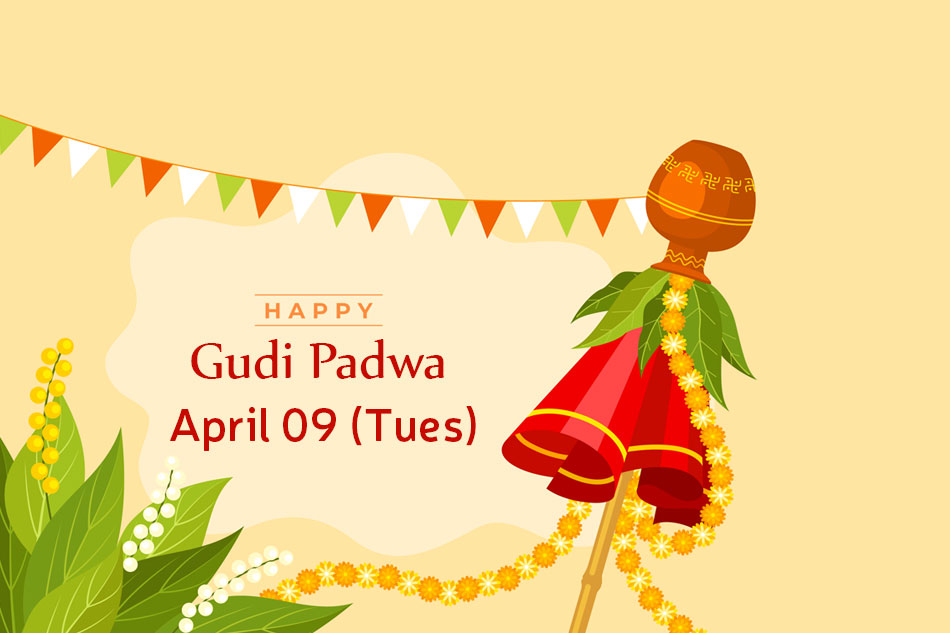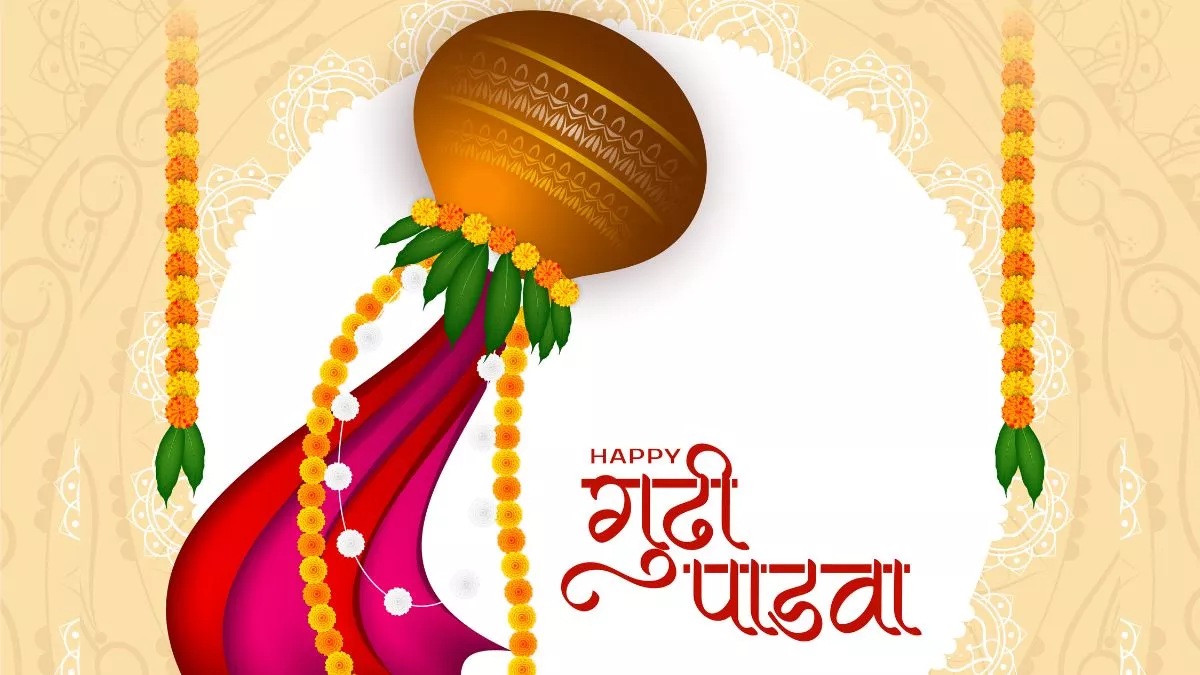Historical and Cultural Significance:
Gudi Padwa traces its roots deep into Indian mythology and history. Legend has it that Lord Rama returned to Ayodhya after 14 years of exile on this day, marking the victory of righteousness over evil. Thus, the festival holds immense cultural and religious significance, symbolizing the onset of a period of happiness and prosperity.

At the heart of Gudi Padwa celebrations lies the 'Gudi', a traditional symbol of victory and auspiciousness. The Gudi is a brightly adorned pole or bamboo stick with a silk cloth, neem leaves, mango leaves, and a garlanded coconut at the top. It is hoisted outside homes to invite prosperity and ward off negative energies. Families wake up early on Gudi Padwa to erect this emblematic structure, signaling the commencement of festivities.
Traditional Rangoli and Decorations:
Homes and streets are adorned with vibrant rangolis, intricate patterns drawn with colored powders, rice flour, or flower petals. These artistic displays not only add to the festive ambiance but also symbolize the welcoming of deities and guests into the household. Marigold flowers, mango leaves, and bright fabrics further embellish doorways and windows, infusing the surroundings with joy and positivity.

Culinary Delights:
No festival in India is complete without a sumptuous feast, and Gudi Padwa is no exception. Maharashtrian households prepare a delectable array of traditional delicacies such as Puran Poli, Shrikhand, Aamras, and Sabudana Khichdi. Each dish carries its own symbolism and significance, representing fertility, sweetness, and abundance. Families come together to relish these mouthwatering treats, reinforcing bonds and creating cherished memories.
Community Celebrations:
Gudi Padwa transcends individual households, uniting communities in celebration. Streets buzz with activity as people exchange greetings, sweets, and gifts with friends and neighbors. Community gatherings, cultural programs, and processions add to the festive fervor, fostering a sense of belonging and solidarity among people of all ages.
Modern Twists:
While Gudi Padwa is deeply rooted in tradition, it also evolves with time. In the digital age, social media platforms are abuzz with festive greetings, virtual gatherings, and creative expressions of cultural pride. Youngsters blend tradition with innovation, incorporating modern elements into age-old rituals while preserving their essence.
Conclusion:
Gudi Padwa 2024 arrives as a beacon of hope and renewal,
beckoning us to embrace the promise of a new beginning. As we adorn our homes
with Gudis, exchange warm wishes, and savor traditional delicacies, let us also
reflect on the timeless wisdom embedded in this ancient festival. May the
spirit of Gudi Padwa inspire us to overcome challenges, cherish our heritage,
and usher in a year filled with prosperity, happiness, and peace. Shubh Gudi
Padwa!

